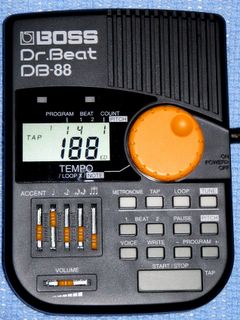However, I was greatly impressed by his ideas - he seems to have developed a system that takes much of the mystery and indeterminacy out of the audition process. The steps he outlined are challenging and time-consuming, but they are also extremely practical and effective. This is my first installment of a series of postings on the audition advice of Tom Freer (TF).
1. An audition = a competition for employment
Audition preparation demands an attitude of fierce determination, but often musicians go without a clear sense of purpose. The primary goal, obviously, is to win a job, with important secondary goals - to make good music, entertain your listeners, have fun. As TF puts it, an audition is like an exam in which you already know all the answers. Your job is to prepare yourself to regurgitate those answers in the most interesting and effective way imaginable.
2. Resume and tape rounds - be professional, not altruistic
Contact with the orchestra begins with your resume and, in many cases, a tape round - since you have more or less infinite opportunity to perfect these, they should be impeccable. In the case of the resume, this means simplicity, brevity, clarity - the name, address, and instrument need to be right at the top, easy to find, and the next thing should be what your professional experience and what you are doing now. Avoid padding with extraneous gigs and audition results - these can paradoxically make you look less experienced. Audition coordinators appreciate if you write your instrument on the outside of the envelope as well, but don't bother with the cover letter - a one-page resume with your contact information and instrument is all the explanation the audition coordinator needs.
TF’s advice on preparing a tape is first of all to recognize that this is an unfair system - anyone can digitally edit a tape to utter perfection, therefore perfection is the standard that orchestras expect. This means that you cannot afford to spare any expense in producing the highest quality CD or DAT recording - minidisc dubs are not good enough. Practically, this requires a concert hall or other high quality acoustical environment, the highest quality microphones available, and a recording engineer and/or a knowledgeable friend who can save time by operating the equipment and cutting you off on flawed takes. You want your job in the recording session to be just a musician, not worrying about supplies and production.
Orchestras may forbid digital editing, and even ask for an entire audition recording to be done in a single take. Until they begin asking for digital video recordings, these requirements are unrealistic - an imperfect audition tape may be a testament to your honesty, but it will also be a waste of time and postage.

Coming up: Dr. Beat, or How I Learned to Stop Worrying and Love the Tap Function

My summary of Thomas Freer's audition advice continues in a later posting - click here to read it. You can read a related post I wrote about a masterclass by Philip Myers, principal horn of the New York Philharmonic.


 Technorati Link Count: no. of blog reactions to this post
Technorati Link Count: no. of blog reactions to this post
3 comments:
Great tips - looking forward to part II! I almost wish I still did auditions... ;-)
I used to have a Dr. Beat., but I've started moving towards the smaller and cheaper solid state metronomes because they're harder to destroy.
little kernel - Thanks so much for reading, I'm flattered! I was very impressed by Popcorn and People, which is why I am imitating your comment pages. Feel free to comment on hella frisch any time, and I would be grateful for any design or content advice!
joe - Good point, I seem to have gravity issues with bulky metronomes as well. I'm thinking I should try placing my bass case strategically next to the stand, hoping to cushion the inevitable falls.
I'll post more of Tom Freer's audition tips on Sunday, he really did have a lot of great ideas!
Cool!
Post a Comment